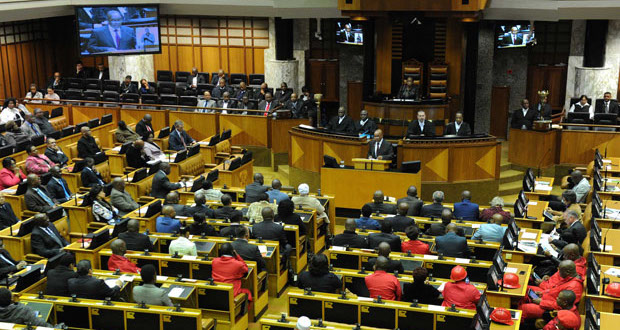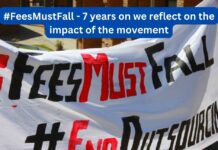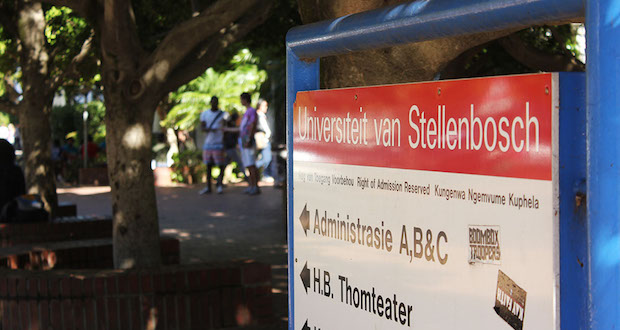Every year around the third week of October, when the Mother City’s homeless no longer have to weather the rain and wind, the minister of finance makes his way down to Cape Town to table his Medium Term Budget Policy Statement (MTBPS) for consideration in Parliament.
That mouthful determines how much government can spend over the next three years on everything from bodyguards for Blade, which he may well need, to textbooks for Tshwane, which we certainly need! And how it will be funded. This is based on what our National Treasury estimates the country’s appetite for national debt and its revenue to be, over the next three years.
As money gets things done (even if imperfectly by government), budgets affect us all. Despite its importance, the public’s interest in the MTBPS hasn’t yet rivalled Soweto’s interest in Steve Hofmeyer. Media underplays its importance dubbing it the “mini-budgetâ€, doing little to draw our attention to where our tax will be spent and ultimately to our well-being. Analysis from TV and radio economists is often confusing, poorly-informed and ideologically-driven.
Despite having the authority to make changes to the budgets presented by the minister of finance, our elected officials do little. ANC MPs respond by singing the minister’s praises and asking silly questions – often because they, like most people, haven’t the faintest clue what GDP, deficits or PIT are.
DA members don’t do much better either, asking arbitrary questions with an underlying mistrust of the (black) government. In their first MTBPS last year, the red overalls – in a thinly veiled attack on the deputy president Cyril Ramaphosa – did no more than just bang-on about international tax evasion. (For context, Lonmin and MTN, with which Ramaphosa is associated, are accused of evading tax). Nothing came of it, nor did the EFF find something else important enough to speak about.
Then there are the “public†hearings. The public hearings present the opportunity for Jabulani-public to engage government on the budget and his future. All Jabu needs to do is to take time off from his job filling petrol at Midrand-Caltex, read and analyse the MTBPS, figure out if the fiscal framework and division of revenue are suitable, prepare a presentation, suit-up and fly down to Cape Town to present his views on the MTBPS to the committees on appropriations and finance.
Needless to say, these hearings are as public as the DA is transformed – sure there’s Mmusi and Patricia, but let’s be real. Instead, a hotchpotch of obscure academics, angry trade unionists and jaded NGO entrepreneurs adopt the name tag “public†and present occasionally interesting views on aspects of the budget to the disinterested and distracted committees.
Public consulted? Tick! Let’s move on.
The MTBPS is eventually adopted in November by the ANC-led parliament. ANC members hoping for a promotion to minister or even a premiership, toe the party line, ask no difficult questions and point out no inadequacies or flaws with the Budget. And so the parliamentary process, instead of ensuring that government is adequately resourced to meet its different responsibilities, is merely a green, gold and black rubber-stamp motion. Fortunately for Jabulani-public, Minister Nhlanhla Nene and his team have a fair sense of what is going on.
All of that changed this year. Students’ concerns over the high and rapidly increasing costs of their education – and ultimately their chances of middle-class life – cascaded into nation-wide mass action. Like the 2010 World Cup, the movement bridged racial, party and class divides. With legitimate and emotive demands, elected officials, of all parties, had no choice but to respond to the groundswell of #FeesMustFall.
The EFF and DA attempted to appropriate the campaign for votes. The EFF’s attempt to send the finance minister back to redraw the MTBPS in response to the students’ demands saw them being (literally) kicked out of the National Assembly (again) by Speaker Baleka Mbete.
After its leader – with his pretentiously township twang – was rejected by the fiercely independent students, the DA attempted to have the MTBPS amended to fund the zero percent increase. When the DA attempts to join a mass movement and quote the Freedom Charter, something must be amiss. And so it became clear to the ANC that its minister of higher education was wrong – there actually was a crisis in higher education. President Jacob Zuma was forced to accede to (part of) the students’ demands, promising a zero percent fee increase for 2016.
The #FeesMustFall movement brought the country’s attention to the funding shortage in higher education. The movement changed the amount National Treasury allocated for higher education for 2016 and beyond; something Parliament, with its 400 members, public hearings and constituency visits, has not been able to achieve in 21 years.
While a victory for students and for our democracy, budgeting is about trade-offs. R2.7 billion more for students means that much less for others. People with disabilities, the environment, child-headed-households, endangered-species and awaiting-trial prisoners can’t tweet, re-post, march, set things alight, sing and petition like students can. But their needs are as legitimate. The #FeesMustFall movement reminded us, and hopefully elected officials too, that hard decisions need to be made.









